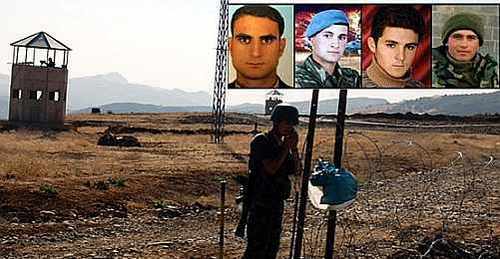Whose Europe, Whats Europe?
Yet, since that day one can hardly observe any improvement to accompany the public legend. Turkey, instead, Turkey goes her way.
"What are the steps taken by Turkey, in terms of freedom of expression, since its adoption as a candidate member to the European Union"- that is a usual question we hear from almost all international reporters who visit Turkey.
Without going into further details I would like to present a few graphic examples: The total ban imposed by the Radio and Television High Commission (RTUK) -- the government body that regulates TV and radio broadcast - on a variety of radio stations and television channels sums up to 7.5 years in the first six months of year 2000.
Recently, a private radio station - Ozgur Radyo - was banned from broadcast by the RTUK for a whole year. Why? The reason is that they have aired a march from among the working class repertoire what was -and still is- being freely distributed in the music market as the ban was imposed. These might hint to the would be improvements regarding freedom of expression in Turkey, since when Ankara was added in the list of candidate members.
During the last two decades, Turkey's human rights record has remained on the agenda of the European Union. During this same period, Turkey had already joined Customs Union with the EU and has later become a candidate member. In addition, Turkey during the period has continued the "low intensity" warfare against Kurdish guerrillas inside Turkey and across her borders in northern Iraq.
Yet this has become the norm in Turkey's relations with Europe. On the one hand the EU countries seriously criticize her and on the other hand they support her.
According to figures released by the Stockholm International Peace Research Institute (SIPRI), between 1990-1997 Turkey was among the top six arms-buyers. In 1993, Turkey seconded Saudi Arabia.
Then, who sells arms?
Let me cite an example. In October 1999, during a visit to Turkey, the Chairman of the French Armament Department, Jean-Yves Helmer, said that France supported Turkey's candidacy to the European Union.
As the representative of the French defense minister, Helmer said France wanted to boost cooperation between Turkey and France in the defense industry. He said defending Europe would be impossible without Turkey's support. He noted that Turkey and France had signed a Defense Cooperation Agreement in 1991, when closer Turkish-France defense ties were established.
Once, I had chance to talk to a European diplomat who was in charge of the Turkey desk of his country's foreign ministry. He was much worried about the possible execution of PKK leader Abdullah Ocalan and said this was a very important issue for his country's foreign policy.
And when it came to the Kurdish question, he said, "of course we support a political solution." Nevertheless, his country is one of Turkey's major arms providers. These weapons have been used in a military campaign -- at the expense of ruining political moves - in order to "solve" the Kurdish problem.
Initially he did not want to confirm that his country sells weapons to Turkey. Then he added that it is not easy for them to follow sales made through third countries. But both of us were fully aware of the reality: His country sells weapons through third countries.
Any way, what difference does it make whether weapons are sold directly or indirectly? He wouldn't say a word, we just laughed.
Turkey has already unfold an arms purchase programme to comprise 1000 main battle tanks and 145 assault helicopters even though the major justification is already eliminated as the PKK guerillas have laid down their arms since September 1999.
Greek - Turkish relations are getting better -- at least it is reported so. Then, for what purpose, against whom and from whom will these arms be bought?
The Turkish government has gone a long way in what the military - industrial journal "Defense News" has described as "its biggest weapons buying spree in recent memory, expected to be worth more than $31 billion during the next eight years and up to $150 billion by the year 2030."
By the way, I would like to underline that Turkey has to import 80 percent of her total defense needs. Who will sell these arms to Turkey? The USA, Germany, France or Italy? All, for sure. They all are ready to support Turkey this way.
For instance, the Green Party in Germany lived problems in their own ranks over the question of whether or not the German government should sell 1000 tanks to Turkey. The USA is very eager to sell Bell Textron's Cobra helicopters to Turkey.
To quote a passage from the SIPRI "Year Book 200": "Overall, major conventional arms transfers in 1999 remained at a much lower level than during the cold war.
The generally dominant position of the USA is reflected in its position as the major arms supplier, accounting in 1995-99 for almost as much as all other suppliers combined. Russia followed with less than 30% of the US level. France, the UK and Germany were the next largest suppliers in 1995-99. However, France was a larger supplier than Russia in 1997 and 1998.
"The largest recipient in 1995-99 was Taiwan, followed by Saudi Arabia and Turkey. The USA was the major supplier for all three countries."
Then what should be the answer to the question, what provides the topic for this conference? Is Europe both the source of and the solution to conflict?
"I want to go to Europe before I die." This is the wish of a house cleaner of Roman origins from Istanbul, who still has to work 10 hours a day at the age of 64 for she lacks social security.
That's the other side of the coin! For Turkey's poor Europe is a dream world, a paradise where everyone lives in prosperity.
How do you call the guest workers -the newcomers? I have just watched in the TV here, how they marched against racism and xenophobia in the EU countries where they work and live.
A reporter was asking an elderly woman, a native, why she was marching. The woman replied: "I know the second world war days and racism and xenophobia. I am marching now so that I would not regret in the future that I was too late."
What is Europe? A continent, a geographical connotation, a cultural environment with common characteristics, an imaginary political-hegemonic structure, a religious or sectarian entity, a common market, the land of wealth and prosperity, the birthplace of nazism and fascism, the hotbed of socialism, the castle of imperialism?
Definitions might vary according to the point of view and the status of the person who responds to the question.
For a women journalist from Turkey, Europe might appear as the combination of all. Yet, none of the characteristics of the European legacy could have been deemed to as the result of voluntary action by the peoples of Europe. Europe perceived from without is the creation of its rulers.
Europe, while entering a new millennium, bears the stamp of centuries of hegemony of successive dynasties, politicians, kings and queens, businessmen, the military -- those who have held the power to mold and restructure their particular societies into their present form.
How would Europe have been formed if it were left to the peoples, to those who have built all those masterpieces, who have fought all those wars, who have sweated along the railroads and harvested the grain under the will and according to the designs of their rulers? I doubt that it would have been the same Europe as today.
I wish the new millennium will unlash the potential of Europe's majority to build a new civilization along with the hopes of the peoples: A peoples' Europe free of wars and exploitation.
Whose Europe? All my friends in Turkey appreciated the title of the conference in Helsinki. They all agreed that, this question should have been directed also to Turkey.
Another day, I was talking to a friend on the phone. He is from the United Kingdom. When I told him that I would be going to Helsinki, he asked why. I told him that writers and journalists are meeting in order to discuss issues under the title of "Whose Europe?" He said there is no need to discuss it. "Because, " he said, "it is our Europe." (NM)
* Text of talk done in Helsinki Forum Meeting in Helsinki, in September, 2000.
BY NADİRE MATER
We* Couldn’t Hold Our Journalism Workshop, LGBTI Events Banned; Voice and Silence
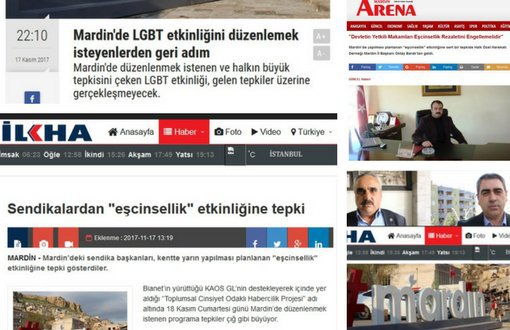
NADİRE MATER'S IMPRESSIONS
İstiklal Street 1 Day After Bomb Attack
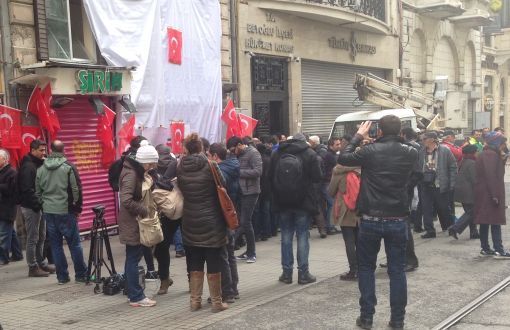
We Are Thankful
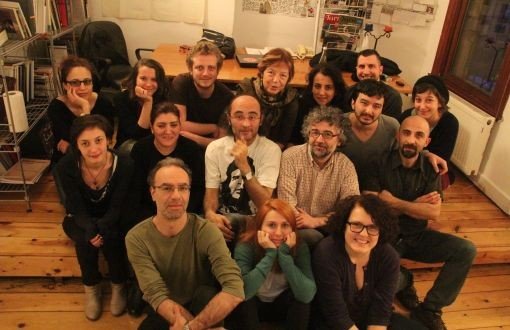
EDUCATION
The Language Wound - Bilingualism with Kurdish
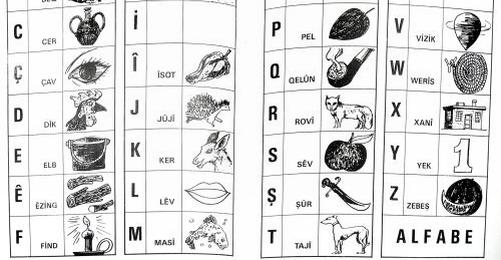
Nadire Mater Writes
The Grenade Pin that Killed İbrahim, İbrahim, Ali Osman and Mesut
